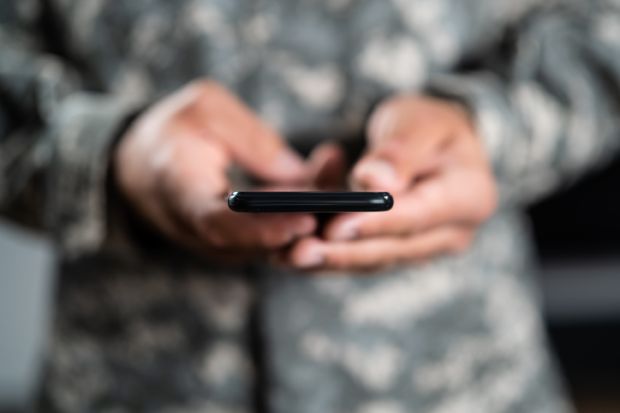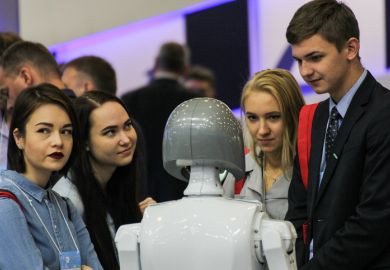An “army” of students, graduates and lecturers in Ukraine is building online tools to help civilians and aid the country’s defence against Russian aggression.
Among those joining the battle is the Faculty of Informatics at the National University of Kyiv-Mohyla Academy, which has developed a mutual aid chatbot on the messaging service Telegram, which lets users search by city or region for humanitarian help or offer assistance themselves. A psychological support bot is in development, designed with the help of researchers who have worked in Ukraine’s eastern Donbas region, controlled by separatist groups since 2014.
The faculty is also building a tool that will use machine-learning techniques to automatically verify genuine information on Russian military movements around Ukraine based on information from social media and audio communications between Russian units. Verified movements can be fed into another in-development tool that automatically plots them on Google Maps.
“There are two main aims in these activities,” said Andrew Afonin, the faculty’s vice-dean. “The first aim is to help people, to help the country, to help the military forces. And the second is to make our students busy, to give them a feeling, an understanding that they are really useful and that they can use knowledge and skills not only to make money, but also to help the country and people in this country.”
“Most of our students, they don’t have military experience, they’ve never even tried to use weapons, so they won’t be useful for the military area. I saw that and decided we need to organise this ‘army’.”
Students are also working to find vulnerabilities in Russian systems that others can use to launch direct attacks. Hacking is not taught by the department, but Professor Afonin said his students were learning fast.
“Not all our people are highly qualified, like second- or first-year students, but they can do things that nobody else can,” he said. “We taught them how to study, how to study quickly, how to get new knowledge and skills in a very short period of time, and how to use them. I’m really proud of them.”
Professor Afonin added: “When the war had just started, everybody was very frustrated. It was very difficult to do anything and everyone was frozen with all this fear. We don’t have fear any more; we just have hate.”
后记
Print headline: Tech attack: cyber warfare added to curriculum for Ukrainian students




